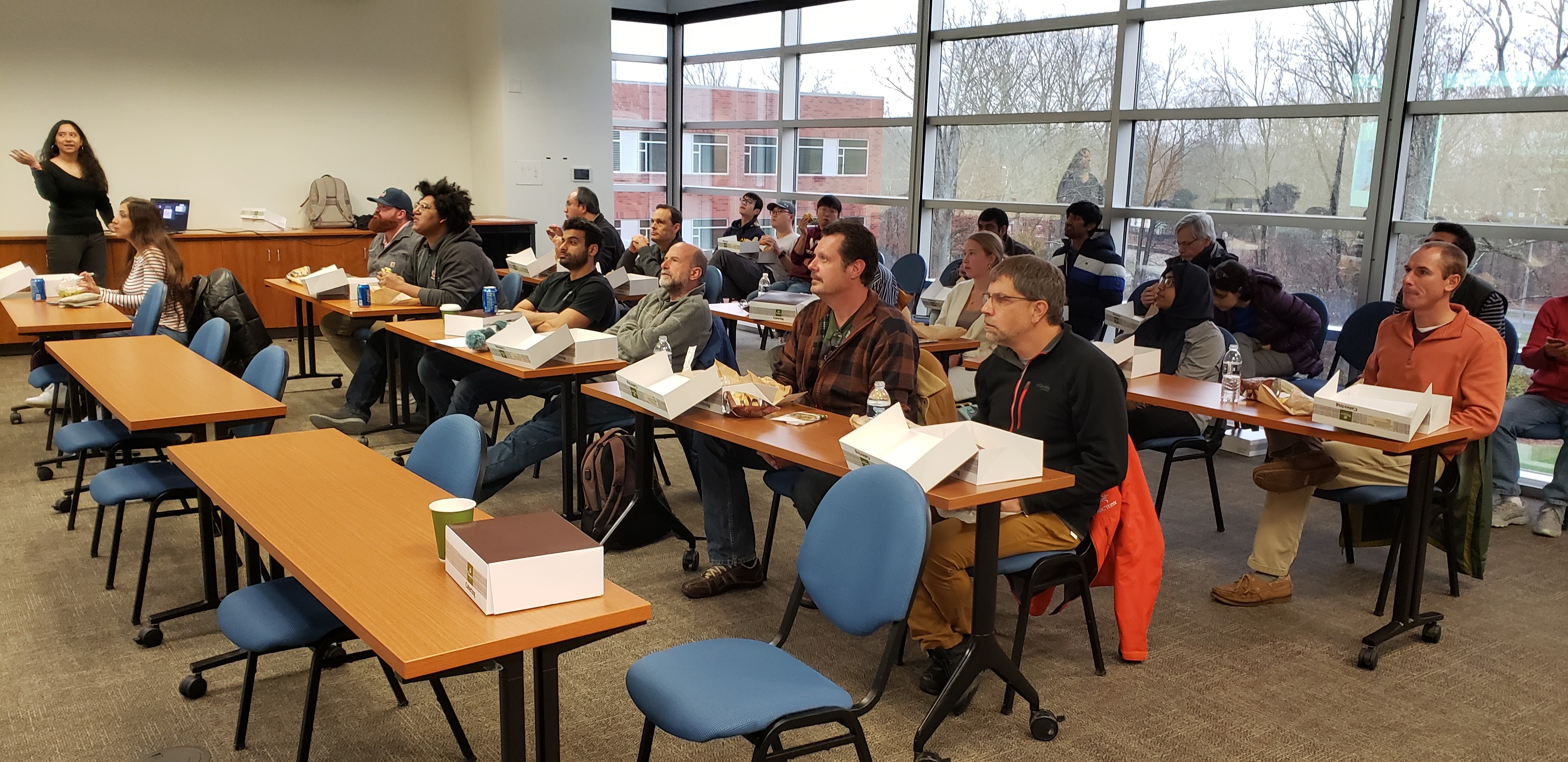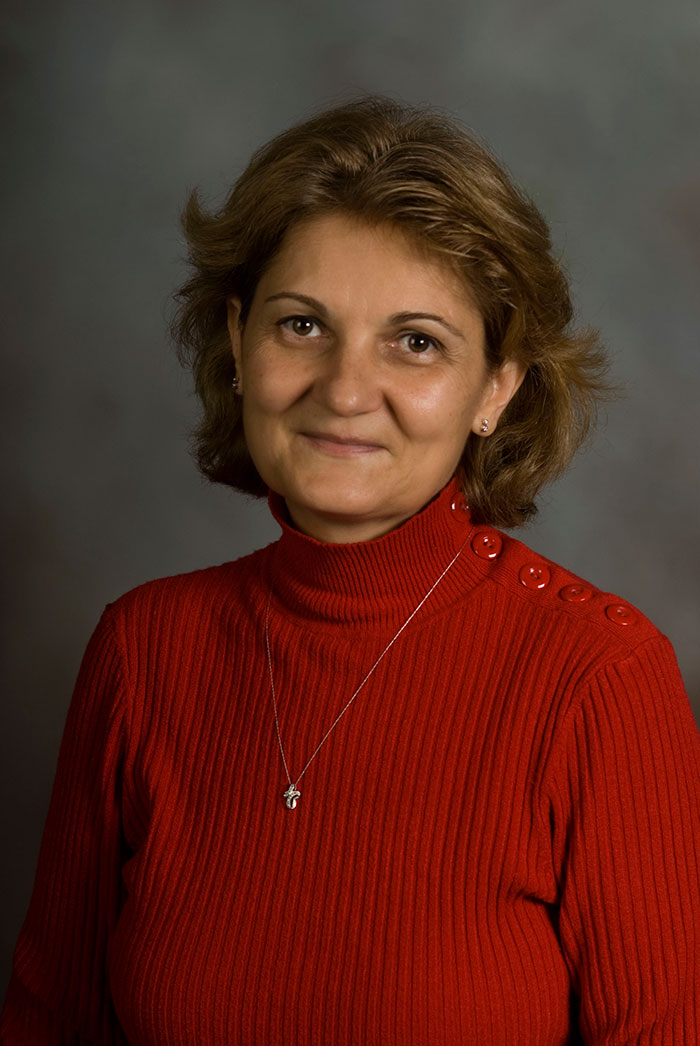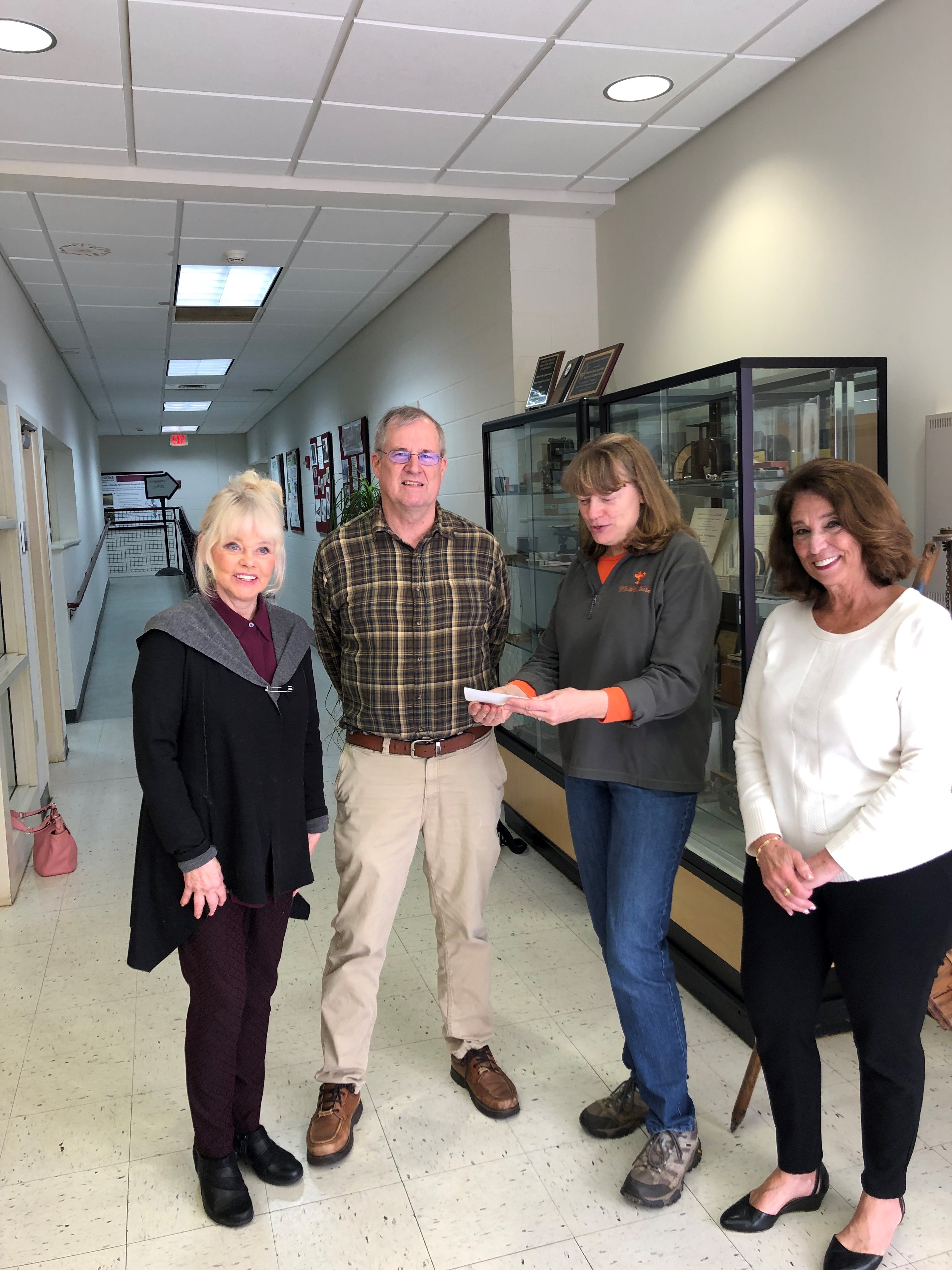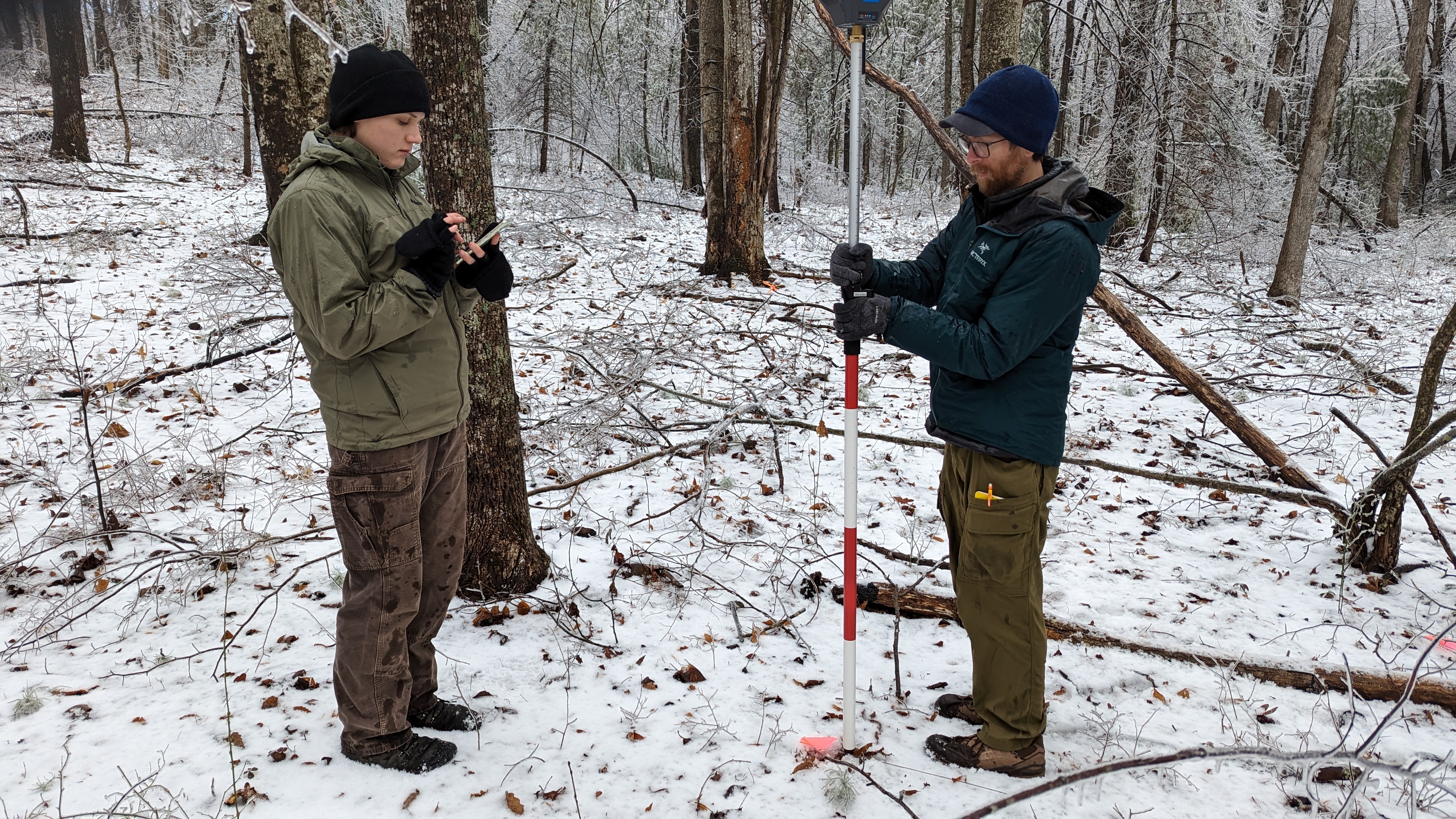Fac-Staff Corner

The Agricultural Technology Innovation Center at the Corporate Research Center held an open house in November. It was a forum for new Faculty members Brianna Posadas, Hasan Seyyedhasani, and Sanaz Shafian to present information on their research projects and for the center to showcase the equipment and research capacity there.
Associate Professor Bo Zhang and Professor Steven Rideout celebrate Ph.D. candidate Xiaoying Li, who was awarded the Gerald O. Mott Meritorious Graduate Student Award by the Crop Science Society of America. The award recognizes “top-notch” graduate students, pursuing advanced degrees in crop science fields.

Professor Maria Balota received a grant from the USDA’s National Institute of Food and Agriculture. The project will focus on peanut variety and quality evaluation, harnessing multiscale data for trait prediction to support cultivar release decisions.
Balota’s publication – ‘Walton’, a new Virginia-type peanut suitable for Virginia and northern U.S. growing regions – was one of the top cited articles after its publication in Journal of Plant Registrations.

The Princess Anne Garden Club in Virginia Beach presented a check for $19,000 to Hampton Roads AREC Director Jeff Derr and Laurie Fox, Hampton Roads AREC Demonstration Garden coordinator. The funds will be used to enhance accessibility and educational engagement in the gardens.

Assistant Professor Leighton Reid and Ph.D. candidate Pika MacDougal performed field work in January at Mount Joy Pond Natural Area Preserve near Raphine, Virginia. They used high precision GPS to map individual stems of a federally threatened plant species, small whorled pogonia, for a study of the effects of prescribed fire on its population dynamics.

Associate Professor Jacob Barney received a Destination Area 2.0 grant to investigate invasive species. Whether plants, animals, or pathogens, invasive species wreak havoc on human health, natural resources, and economic systems worldwide, costing $1.3 trillion globally each year. The team, led by Barney, plans to position Virginia Tech as a global leader in developing innovative science and policy solutions to better predict, detect, assess, and control invasive species. “This is an unparalleled effort that does not exist elsewhere,” said Barney. The transdisciplinary grants are given to teams attempting to solve some of the world’s stickiest and most urgent challenges.